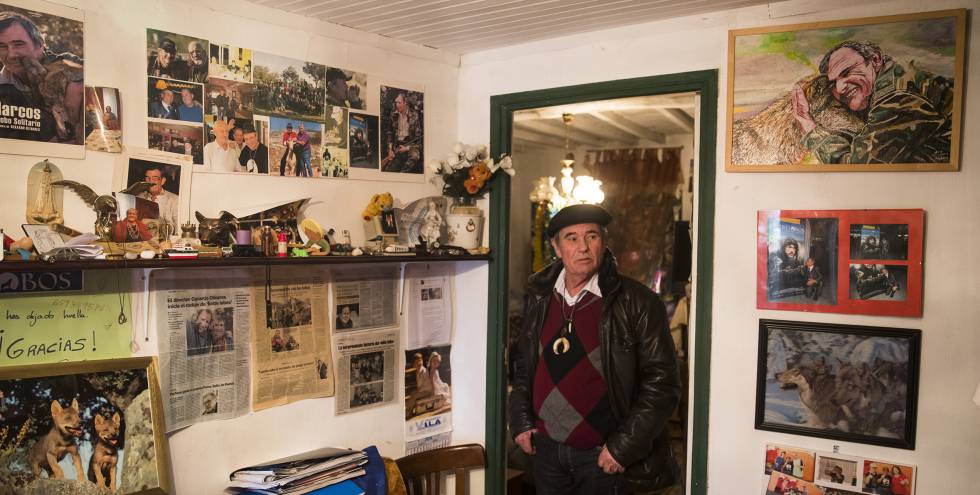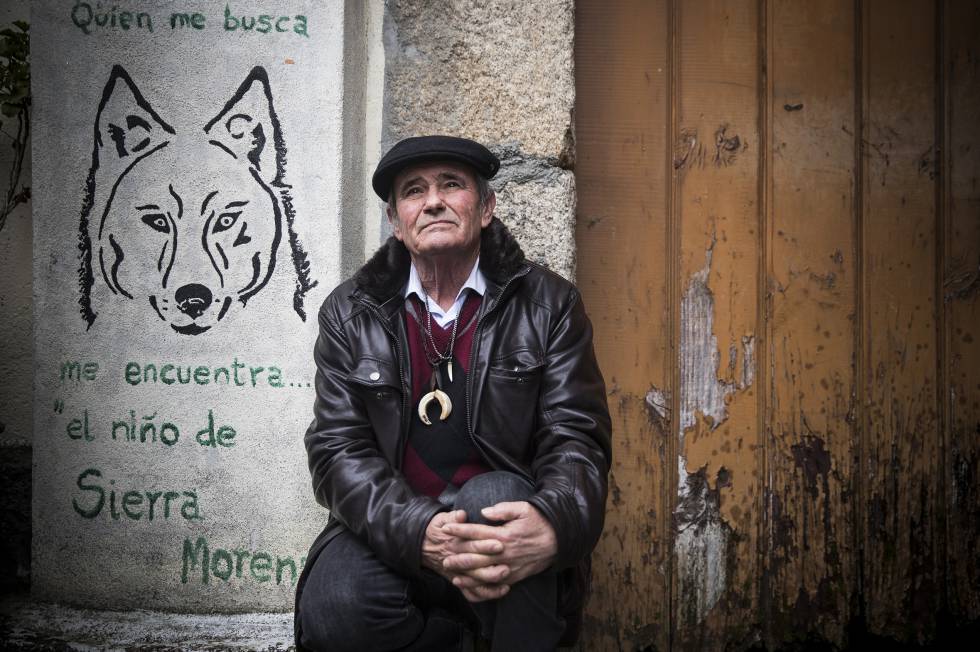Spaniard raised by wolves disappointed with human life
Marcos Rodríguez Pantoja, who lived among animals for 12 years, finds it hard just to get through the winter
Marcos Rodríguez Pantoja was once the “Mowgli” of Spain’s Sierra Morena mountain range, but life has changed a lot since then. Now the 72-year-old lives in a small, cold house in the village of Rante, in the Galician province of Ourense. This past winter has been hard for him, and a violent cough interrupts him often as he speaks.
His last happy memories were of his childhood with the wolves. The wolf cubs accepted him as a brother, while the she-wolf who fed him taught him the meaning of motherhood. He slept in a cave alongside bats, snakes and deer, listening to them as they exchanged squawks and howls. Together they taught him how to survive. Thanks to them, Rodríguez learned which berries and mushrooms were safe to eat.
Today, the former wolf boy, who was 19 when he was discovered by the Civil Guard and ripped away from his natural home, struggles with the coldness of the human world. It’s something that didn’t affect him so much when he was running around barefoot and half-naked with the wolves. “I only wrapped my feet up when they hurt because of the snow,” he remembers. “I had such big calluses on my feet that kicking a rock was like kicking a ball.”
After he was captured, Rodríguez’s world fell apart and he has never been able to fully recover. He’s been cheated and abused, exploited by bosses in the hospitality and construction industries, and never fully reintegrated to the human tribe. But at least his neighbors in Rante accept him as “one of them.” And now, the environmental group Amig@s das Arbores is raising money to insulate Rodríguez’s house and buy him a small pellet boiler – things that his meager pension cannot cover.
They laugh at me because I don’t know about politics or soccer
Marcos Rodríguez Pantoja
Rodríguez is one of the few documented cases in the world of a child being raised by animals away from humans. He was born in Añora, in Córdoba province, in 1946. His mother died giving birth when he was three years old, and his father left to live with another woman in Fuencaliente. Rodríguez only remembers abuse during this period of his life.
They took him to the mountains to replace an old goatherd who cared for 300 animals. The man taught him the use of fire and how to make utensils, but then died suddenly or disappeared, leaving Rodríguez completely alone around 1954, when he was just seven years old. When authorities found Rodríguez, he had swapped words for grunts. But he could still cry. “Animals also cry,” he says.
 ampliar foto
ampliar foto He admits that he has tried to return to the mountains but “it is not what it used to be,” he says. Now the wolves don’t see him as a brother anymore. “You can tell that they are right there, you hear them panting, it gives you goosebumps … but it’s not that easy to see them,” he explains. “There are wolves and if I call out to them they are going to respond, but they are not going to approach me,” he says with a sigh. “I smell like people, I wear cologne.” He was also sad to see that there were now cottages and big electric gates where his cave used to be.
His experience has been the subject of various anthropological studies, books by authors such as Gabriel Janer, and the 2010 film Among wolves (Entrelobos) by Gerardo Olivares. He insists that life has been much harder since he was thrown back into the modern world. “I think they laugh at me because I don’t know about politics or soccer,” he said one day. “Laugh back at them,” his doctor told him. “Everyone knows less than you.”
He has encountered many bad people along the way, but there have also been acts of solidarity. The forest officer Xosé Santos, a member of Amig@s das Arbores, organizes sessions at schools where Rodríguez can talk about his love for animals and the importance of caring for the environment. “It’s amazing how he enthralls the children with his life experience,” says Santos. Children, after all, are the humans whom Rodríguez feels most comfortable with.
(From: https://elpais.com/elpais/2018/03/28/inenglish/1522237746_629465.html?id_externo_rsoc=FB_CM)
English version by Melissa Kitson.









